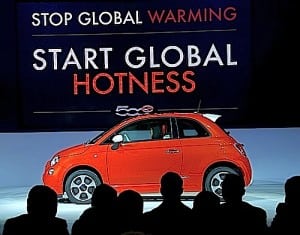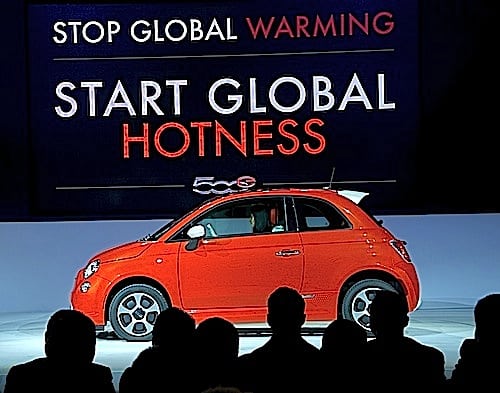
It’s a wonder why the mainstream news media can’t report facts as is and has to through its obvious agenda around. Considering three well known companies own most news outlets, it’s no wonder we can’t get a clear view of the alternative energy vehicle world.
It’s strange to see the love and hate relationship the media world shows with alternative energy vehicles. Why are people so emotional when it comes to cars? This is obviously a rhetoric question. The car culture is based on an emotional appeal, both visual and sensorial. So what is it that bothers everyone when disruptive technologies happen and threaten to change our ways?
Plug-In Vehicles Sales Double From Last Year. According to the US Department of Energy (DoE), roughly 40,000 plug-in vehicles were bought in the United States in the first six months of 2013. Alone, this isn’t a big number for the car industry but it is more than double from the same period last year. In other words, in 2012 there were 52,000 EVs sold, which is a healthy increase from 17,000 in 2011. Add to this the slowly dropping price of lithium batteries, worries over gasoline price fluctuations and media scare-hype headlines, and you can see why buyers are looking for ways to buffer their lives from erratic and wild speculations.
If you consider when and how hybrids cars came on the market, over a decade ago, plug-in cars have done formidably well. Consider also they came at the worse market crash our country ever experienced in 2008, and it’s obvious plug-in cars are disruptive. To put into context, electric vehicles have done in 30 months what took hybrids a good part of last decade to achieve. In fact, if 3,000 hybrids sold per month the first 30 months after they were introduced, within the same time period, plug-in vehicles are selling at 9,000 per month. To drive the point even further, battery operated vehicle (EV) are now outselling plug-in hybrids (PHEV), defying car maker logic people would prefer a PHEV before they feel comfortable in an EV.
Slashing Prices and Government Incentives. Obviously, it’s debatable whether these numbers would have been reached without the generous help of the Federal and local governments. Our history is ripe with price manipulation, whether overt or not, but looking at the bigger picture, favoring vehicles that run on home produced energy isn’t necessarily a bad thing.
Looking Back at the Automobile History. If we are honest, we will find the best moments in the automobile history around the pioneering era, circa early 1900. Then followed the even greater racing era of the 1920s and 30s. That is truly when the gasoline engine became a reliable and worthy tool to shorten the great distances of our country. The 1950s gave birth to a wide range of cars answering almost everyone’s needs. The 1960s saw a jump in car racing, extravagant new supercars, which somewhat culminated in the 1970s.
Something Went Wrong. Car companies the became bottom line dwellers. They bought competing carmakers. The 1980s brought us shoddily mass produced cars, with boring designs, bad plastics, awful gasoline economy, questionable reliability, handling and looks. The 1990s struggled to answer these failings but it wasn’t until this past recession that carmakers were forced to think outside the box and reignite our car passion. If I was bored with cars since the 80s, only drive 1970s or before cars, post-2008 cars have sparked my imagination again. Finally, we have interesting cars again, even if they sport strange configurations and electric motors.
So why do disruptive technologies upset us so much? After all, they hold the promise of a brighter future. They curb our automobile weight problems and out of control gasoline consumptions. They offer us another way of using cars that can be both utilitarian, fun to drive and gasoline frugal. Until we learn to be thankful most of us can have the old sports car we couldn’t afford with a daily commuter that does more then it ever has before, we will continue to be upset looking at a positive future we cannot fully comprehend.
We are a passionate bunch and anything that touches our cars, touches us personally. While I still enjoy a diverse group of friends ranging from MOPAR lovers, to vintage collectors, the car segment that has given me the most enjoyment is the alternative energy vehicle market, electric vehicles (EV) and plug-in hybrids (PHEV).







